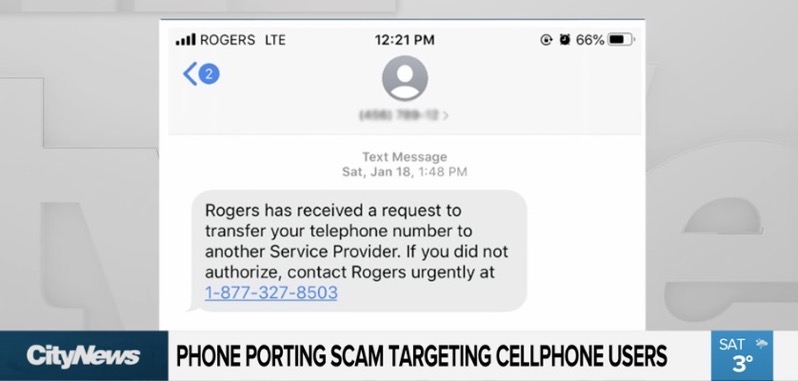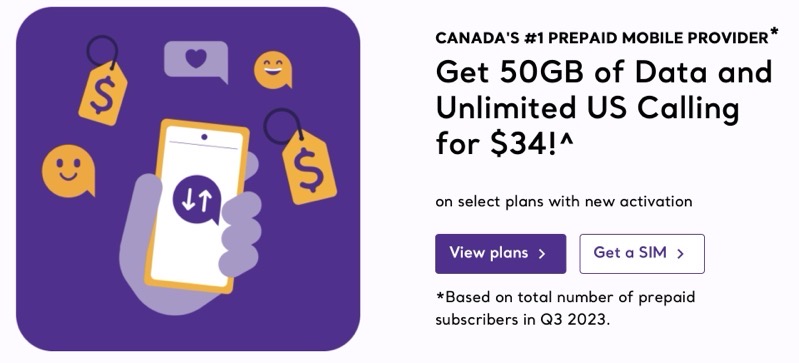
Rogers Customer Falls Victim to New Cellphone Number Porting Scam

When Rogers customer Samantha Burnet received a text message notifying her a request was made to transfer her wireless number to another company–and to call in if it wasn’t authorized–she brushed it off as a scam. Turns out, it wasn’t a scam and she fell victim to her account getting taken over by fraudsters, reports CityNews.
“It looked like a scam from the beginning and I didn’t think anything of it,” said Burnet, adding, “But within two hours, I had no cellphone service on my phone.”
After contacting Rogers, she was told she had become victim of a cellphone number porting scam. Rogers then started the process of obtaining her number back.
Since Burnet had used her cellphone number for two-factor authentication for various logins, fraudsters were able to access her other accounts. She quickly saw $800 worth of PlayStation 4 systems ordered from her Amazon account.
Burnet was angry about the way Rogers handled her phone porting, by only notifying her with a text message that looked fake, to begin with.
“Sending me a text message that I need to respond to in 10 minutes, that is very unrealistic,” said Burnet. “But talking to them, their hands are tied based on the competition rules within the telecommunications industry. They can’t block you from porting a number over to another provider and they can’t do anything beyond send you a text message.”
A Rogers spokesperson told CityNews (owned by Rogers Media) the following statement:
“We take protecting our customers’ personal information very seriously, and as fraudsters evolve their tactics, we work with other carriers to continually strengthen processes to prevent unauthorized porting, including new protections put in place this past fall.”
The Canadian Wireless Telecommunications Association (CWTA), which is the lobby group for telecoms, told CityNews only active numbers can be ported. Burnet was miffed how she was not protected.
“In many cases fraudsters obtain the personal information required to enable a number port in a variety of ways, including phishing campaigns, acquiring personal information from the ‘dark web’ or buying it from organized criminals,” said a CWTA spokesperson. “Sometimes they directly socially engineer the victim, or they have a personal relationship with the target and have access to their personal information.”
Burnet said the entire ordeal was “pretty violating”, noting how she doesn’t know what other issues she may have to deal with now that fraudsters were able to gain control of her phone number.

